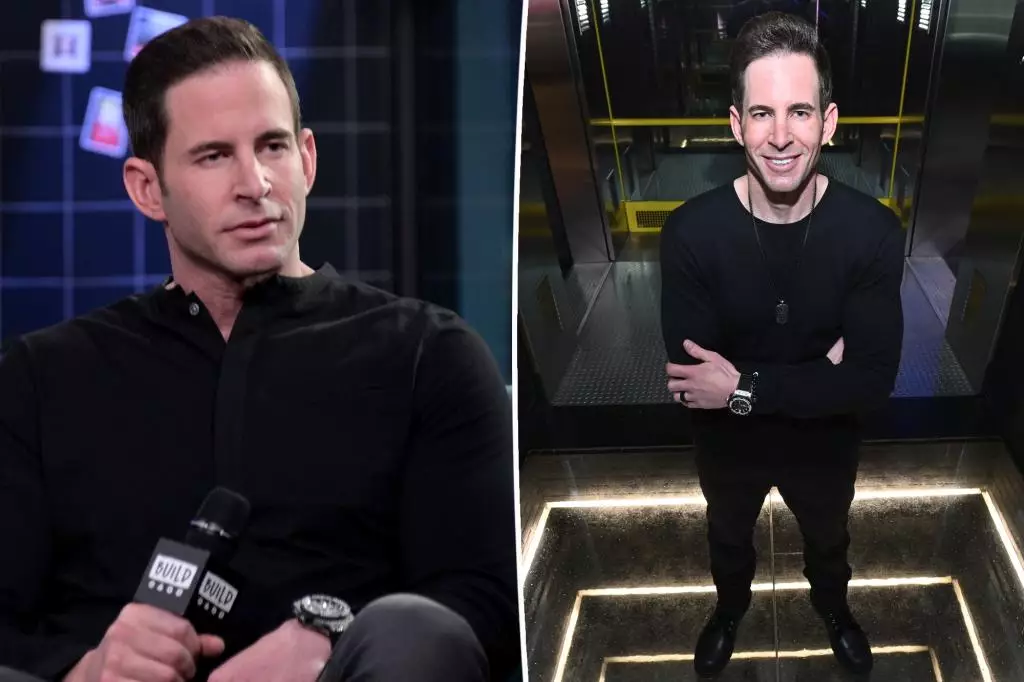In an era dominated by camera phones and social media, celebrity scandals can unfold in real-time, often leaving fans both shocked and bewildered. One such incident involves Tarek El Moussa, the charismatic star of HGTV’s “Flip or Flop.” Following an alleged violent confrontation during a trip to Las Vegas, this reality television personality finds himself embroiled in controversy. While the full extent of what transpired on June 5 is still being scrutinized, the headlines tell a tale of impulsive actions and uncharacteristic aggression, raising questions about celebrity behavior and the pressures that accompany fame.
What Happened at the Palazzo?
The incident took place at the Palazzo at the Venetian hotel, a venue renowned for its opulence. According to reports from the Las Vegas Metropolitan Police Department, the brawl began when a man accidentally bumped into El Moussa’s father’s chair at a roulette table. Observers described a swift escalation: the father became visibly offended, prompting the son to leap to his defense. This parent-protective instinct morphed into a physical confrontation when El Moussa allegedly pushed the man and assumed what can only be described as a “fighting stance.”
What followed seems to have spiraled out of control. As the situation developed, the alleged victim attempted to tackle El Moussa, who reacted with a knee to the head, subsequently leading to a series of blows to the downed man’s head. Witnesses reported the sequence as aggressive, with one expressing shock over how quickly the fight had escalated. The repercussions for the alleged victim included visible injuries—bruises and a cut, which he reportedly refused treatment for.
The Question of Intent: Protection vs. Provocation
El Moussa’s narrative to the police was that his actions were rooted in a desire to protect his elderly father, who has noted back problems. This angle begs the question: do celebrities often find themselves in situations where they feel an overwhelming need to protect their family, thus clouding their judgment? It’s compelling to consider how the adrenaline of fame—combined with perceived threats to family—can lead to explosive reactions, reminiscent of a protective instinct many might not associate with a public figure often viewed as relatable and down-to-earth.
The police report also highlights an interesting contrast in reactions: while El Moussa did not face immediate arrest, he was read his Miranda rights, signaling a serious nature about the confrontation. Celebrity encounters with law enforcement can often take different paths based on public persona and influence, drawing attention to broader issues of equity and justice in situations of violence.
Public Image and Reality Television
The fallout from this encounter poses significant implications for El Moussa’s public image. As a reality television star, he navigates a delicate balance between being relatable and maintaining an aspirational lifestyle. Fans who tune in to his shows often see him in a polished, professional light. This altercation, however, disrupts that facade, forcing viewers to grapple with the idea that behind the polished veneer lies a human capable of significant emotional outbursts.
For many in the public sphere, the dualistic nature of celebrity life can lead to cognitive dissonance. How do fans reconcile the charming persona seen on their screens with the more volatile behaviors exhibited in real life? With El Moussa’s recent trip to Las Vegas reportedly intended to showcase a celebratory family getaway, the stark contrast of becoming an alleged aggressor raises eyebrows and invites discussion about the pressures of public life, especially under the glaring eyes of fans and media.
The Aftermath: Social Media and Cultural Commentary
Social media has played a pivotal role in shaping narratives around events like this. As fans and followers react on various platforms, the story extends beyond mere headlines, morphing into a cultural commentary about violence, celebrity accountability, and the complex dynamics of fame. Tarek El Moussa’s wife, Heather Rae Young, shared snippets of their trip, completely omitting the violent incident. This highlights a common trend where public figures often curate their online presence to maintain a particular image, selectively showcasing only the ‘highlight reel’ of their lives.
In an age where every action can go viral, the challenge remains for celebrities to manage not just their public personas but also their real-life behaviors. The aftermath of this controversy will likely shape how El Moussa is perceived moving forward, opening up dialogues about behavioral expectations of public figures, especially in emotionally charged scenarios.
As Tarek El Moussa navigates the public’s reaction and the fallout from this incident, we can only reflect on the complexities of celebrity culture, where every altercation can lead to a deeper examination of human behavior, societal expectations, and the very nature of fame.

